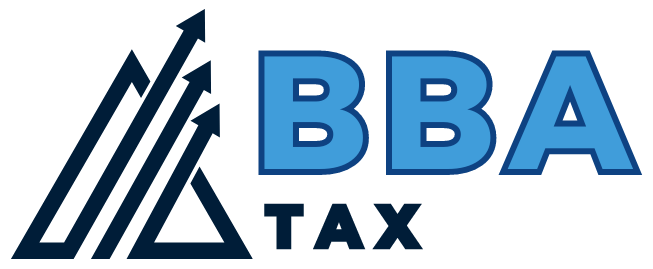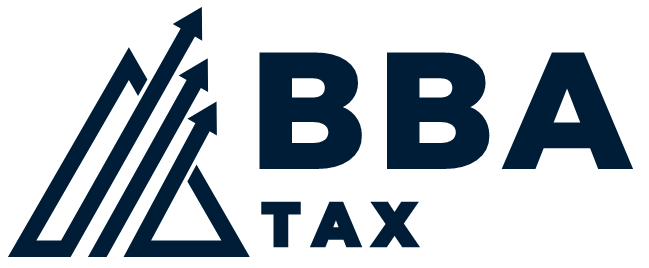Table of contents
- Introduction — quick answer and who this is for
- TL;DR: Who should use TurboTax and who should hire an accountant?
- What TurboTax (and other DIY tax software) can do — strengths & limitations
- What a professional tax accountant brings to the table
- Side-by-side comparison: TurboTax vs Accountant (practical checklist)
- How and why the CRA starts audits — everything you need to know
- Types of CRA audits, reassessments and your rights (including appeals)
- Car audits & vehicle expense rules — logbooks, records and defence
- If the CRA contacts you — step-by-step response & how an accountant helps
- Costs, ROI and how to choose the right option for your situation
- Practical file & recordkeeping checklist to lower audit risk
- Why BBA Tax — how we can help Ottawa businesses & individuals
- Closing summary & call to action
1. Introduction — quick answer and who this is for
Deciding whether to “hire an accountant or use TurboTax” is one of the most common questions Canadian taxpayers — especially small business owners in Ottawa — ask every tax season. The short answer: for simple, one-job, straightforward returns TurboTax (or similar DIY software) is often fine; for anything more complex (incorporations, multiple income streams, business bookkeeping, significant investments, rental property, large deductions or a potential CRA audit) a qualified accountant almost always pays for itself.
This guide is written for Canadian individuals and small business owners and tailored to Ottawa readers who might consider BBA Tax for bookkeeping, corporate taxes, personal taxes, cra audit defense, incorporation, and financial management.
2. Who should use TurboTax and who should hire an accountant?
Good fit for TurboTax / DIY software
- You are an employee with only T4 income and standard deductions (RRSP, union dues) with no rental, business, or foreign income.
- You want a low-cost option and are confident keeping simple records.
- You don’t expect complexity (no capital gains, no incorporation, no HST/GST filings).
Hire an accountant (or at least consult one) if you have any of the following
- You run a small business, are incorporated, or have payroll/GST obligations.
- You claim significant vehicle, home office, or capital cost allowances.
- You have rental properties or investment income with capital gains/losses.
- You received a CRA notice, are being audited, or want audit representation or car audit defense.
- You want proactive tax planning, cashflow forecasts, or corporate tax planning.
If you’re unsure which bucket you’re in, a short consult with a licensed Ottawa tax accountant (like BBA Tax) is a good, low-risk first step. Accountants can often save more in tax than they cost; they’re also your advocate if CRA comes knocking.
3. What TurboTax (and other DIY tax software) can do — strengths & limitations
Strengths of TurboTax
- Cost effective for simple returns. For straightforward T4 returns the DIY cost is usually minimal or free. TurboTax’s Canadian products are NETFILE-certified and designed to guide taxpayers through common credits and deductions.
- Speed and convenience. Guided questionnaires, auto-calculations, and e-filing mean faster completion and instant submission.
- Audit-prevention checks. Modern tax software includes rule checks to avoid arithmetic mistakes or clearly incorrect entries (which reduces simple errors that trigger reassessments). TurboTax advertises checks designed to reduce audit risk.
- Optional expert help. Many software platforms (including TurboTax) offer paid “assist & review” or full-service options where a tax pro reviews or completes the return — a middle ground between DIY and full accounting engagement.
Limitations of DIY software
- Limited context & planning. Software can’t build a multi-year tax strategy, advise on incorporation timing, payroll structuring, or more subtle CRA interpretation — an accountant can.
- Audit representation is limited. Some software offers “Audit Defense” products, often through third-party providers, but these can have exclusions (for example, GST/HST and complex corporate audits may be excluded), and they may not replace a local accountant’s knowledge and relationship with the CRA. Read the fine print closely.
- Complex returns still require judgment. Software can’t replace interpretative professional judgment in borderline areas (e.g., reasonable business vs personal vehicle usage, SR&ED vs normal R&D, or home office allocation).
- No hands-on bookkeeping or financial management. If your business needs accurate books (bank reconciliations, payroll filings, HST remittances), software alone may leave you exposed to errors that later trigger audits or penalties.
Bottom line: TurboTax is a powerful and economical tool for simple cases. It reduces obvious errors and is a fine fit when the tax situation is straightforward. For complex returns, proactive planning, or audit defence you’re better off with an experienced Ottawa tax accountant.
4. What a professional tax accountant brings to the table
Core benefits

- Tailored tax strategy and planning. Accountants provide multi-year tax planning, advise on incorporation timing, dividend vs salary strategies, RRSP/TFSA planning, and succession planning. These strategies often produce tax savings far larger than the cost of their services.
- Representation & audit defense. A licensed accountant will communicate with CRA on your behalf, prepare responses, and represent you at interviews or examinations. This is especially valuable for business owners and anyone facing a vehicle/car or bookkeeping audit.
- Bookkeeping & clean records. Proper bookkeeping reduces mistakes, keeps you audit-ready, and helps with cashflow and tax estimates. Accountants can set up bookkeeping systems or maintain them for you.
- Complex compliance (HST/GST, payroll, corporate filing). Accountants ensure remittance deadlines are met, payroll source deductions are calculated and remitted correctly, and corporate filings are accurate to avoid interest and penalties.
- Appeals and litigation support. If you disagree with a reassessment, an accountant (often working with tax lawyers) can prepare formal objections and appeals to the Tax Court of Canada.
Specialized services (what BBA Tax offers)
- Bookkeeping to keep records audit-ready and to support accurate GST/PST remittances.
- Corporate and personal tax returns including corporate tax planning and filing.
- Car audit defense — representing clients when vehicle expense claims or mileage records are questioned. (More detail in the “Car audits” section.)
- Incorporation & financial management — structuring, cashflow forecasts, and CFO-style guidance for small businesses.
5. Side-by-side comparison: TurboTax vs Accountant (practical checklist)
| Feature / Need | TurboTax (DIY) | Accountant (professional) |
|---|---|---|
| Simple T4 return | Excellent (cheap/fast) | Overkill |
| Rental property returns | Possible, but needs care | Recommended |
| Incorporated business/CRA corporate tax | Not recommended | Recommended |
| Bookkeeping / HST remittance | Software helps, but you must do it | Accountant does it and reconciles |
| Audit representation | Optional Audit Defence add-ons may help (check exclusions) | Full representation & negotiation |
| Vehicle audit & logbook defense | You supply documents; limited support | Accountant prepares records, represents you |
| Tax planning & optimization | Limited to prompts | Proactive, tailored planning |
| Cost | Low (free → paid tiers) | Higher up-front; potential tax savings long term |
6. How and why the CRA starts audits — everything you need to know
Understanding how CRA selects files for review reduces anxiety and helps you avoid common triggers. The CRA uses a mix of automated data matching, risk models, third-party information, and targeted industry reviews to select returns for further review or audit. Typical triggers include:
- Data mismatches with third-party slips (T4s, T5s, T3s, T5018, information exchanged via T1135 or international data sharing). If reported income on your return doesn’t match slips or third-party reporting, CRA flags it.
- Unusually high deductions relative to industry or income level (large business expenses, vehicle claims, meal/entertainment claims, or disproportionate home office claims).
- Random selection or targeted campaigns. CRA runs industry campaigns (e.g., restaurants, construction, ride-sharing) to select returns for review. Some audits are targeted to specific sectors or to enforce a tax rule application.
- Tips, complaints, or referrals. CRA receives third-party tips and referrals.
- Large or unusual transactions (significant capital gains, large RRSP over-contributions, large foreign asset reporting, or sudden spikes in deductions).
- Mismatch in GST/HST filings vs income — when HST collected/claimed does not align with reported income.
The CRA’s public guidance about audits and compliance explains their selection process and how they conduct examinations. If the CRA decides to review your file it will usually start with information requests and then escalate if additional evidence is needed.
Key point: Many audits begin not because of fraud but due to mismatches, missing slips, or unusually large claims. Good recordkeeping is the single best defense.
7. Types of CRA audits, reassessments and your rights (including appeals)

Common types of CRA reviews
- Desk review (correspondence audit): CRA sends requests for documentation by mail or requests supporting paperwork. Often resolved by providing the requested receipts, logbooks, or clarifications.
- Field audit (in-person review): CRA may visit your business or request a meeting to review books, invoices, bank statements and physical records.
- Specialized audits / criminal investigations: Where CRA suspects deliberate tax evasion or fraud they may escalate to criminal investigations — a serious matter which requires legal representation.
Reassessment vs audit — what’s the difference?
- Audit = CRA examines your return and records to verify information. Audits may or may not result in further charges.
- Reassessment = CRA issues a new assessment that changes the original amount of tax owing or refund. Reassessments can follow an audit or a desk review if CRA identifies errors. If you disagree with a reassessment you can file a Notice of Objection within the statutory period (generally 90 days after the notice of assessment/reassessment).
Your rights and timelines
- You have the right to be represented by an authorized representative (an accountant or tax lawyer).
- For most Income Tax objections, you must file a Notice of Objection within 90 days of the Notice of Assessment/Reassessment. (There are extensions in limited circumstances but act promptly.)
Penalties & interest — what’s at stake
- Late-filing penalties and interest can add substantially to any reassessed tax. CRA applies interest daily on outstanding taxes and can impose penalties for late filing.
- False statement or omission penalties may apply where CRA considers claims to be grossly negligent or willful; these penalties can be as high as 50% of the understated tax in certain circumstances. Criminal prosecution is possible in extreme cases. Stay factual and keep proper records.
8. Car audits & vehicle expense rules — logbooks, records and defence
Vehicle expenses are a frequent audit target. The CRA expects detailed, contemporaneous records for business use of motor vehicles. Common issues include over-claimed business kilometres, missing logbooks, and lack of supporting receipts.
What the CRA expects you to keep
- Kilometre logbook (recommended format: date, odometer start/stop, business kilometers driven, purpose of trip). CRA guidance explains how to substantiate automobile expenses and what records to keep. Typically, a 12-month sample logbook may be requested to substantiate ongoing patterns, and documents should be kept for six years from the end of the tax year to which they relate.
- Receipts and invoices for fuel, repairs, insurance, lease interest and lease payments (or purchase documents if vehicle purchased).
- Supporting documents proving business purpose: client meeting notes, appointment schedules, delivery manifests, or GPS logs where applicable.
Audit tips and defense for vehicle claims
- Keep contemporaneous logs — retrospective guesses are far less persuasive. A contemporaneous log that shows start/stop odometer and purpose is your best evidence.
- Be conservative when allocating business vs personal use. When in doubt, err on the conservative side; adjust claims to reflect personal use.
- Use technology wisely. GPS logs, mileage tracker apps and calendar entries help substantiate business kilometres — but keep a backup paper or PDF copy in case an app’s data becomes unavailable.
- If audited, produce the logbook and receipts promptly and engage a tax professional who can structure your response and negotiate with CRA if necessary.
If you want BBA Tax to defend your vehicle claims, we can prepare a compliant logbook, assemble supporting evidence, and represent you during a CRA review.
9. If the CRA contacts you — step-by-step response & how an accountant helps
- Don’t panic. Most reviews are routine and can be resolved with documentation.
- Read the CRA letter carefully. Note deadlines and the specific items CRA is questioning. If anything is unclear, contact the CRA for clarification in writing (and copy your representative).
- Gather supporting documents immediately. Receipts, bank statements, invoices, mileage logs, and any contracts or leases relevant to the items in question.
- Contact your accountant (or hire one). A tax pro will review the request, prepare a response, and, if necessary, represent you at interviews or field visits. Having a professional communicate with CRA often reduces the stress and avoids misstatements.
- Consider voluntary disclosure (VDP) if problems are discovered and CRA hasn’t started enforcement action. If you discover previously unreported income, coming forward through the VDP may reduce or eliminate penalties in appropriate cases. Note: VDP rules and relief vary and have eligibility criteria — consult a professional.
- If you disagree with a reassessment, file a Notice of Objection within 90 days. Your accountant can prepare the objection with legal and factual support and, if necessary, move to an appeal to the Tax Court.
Why an accountant helps here: accountants know how CRA expects information to be presented, can negotiate reasonable settlements or corrected assessments, and — importantly — can act as your authorized representative so you never have to deal with CRA alone.
10. Costs, ROI and how to choose the right option for your situation
TurboTax / DIY costs
- Direct cost: little to none for simple returns; pricing climbs for more complex returns or if you choose expert review. TurboTax Canada runs tiers (free for simple, paid tiers for more complex returns or full-service). Audit-defense add-ons may be offered for an extra fee.
Accountant costs
- Range: Accountant fees vary widely based on complexity, region, and services. For example, routine personal tax preparation is less expensive than corporate tax planning, bookkeeping, or audit representation. Many small business clients view accountant fees as an investment — proper planning, HST/GST optimization, and accurate bookkeeping often pay for themselves. (Fee surveys show a wide range; get quotes based on the specific services needed).
ROI considerations

- Tax savings & risk reduction. If an accountant reduces taxable income, identifies credits, or avoids penalties, the value can exceed costs. For business owners, avoiding an audit or successfully defending a vehicle claim can save thousands.
- Time saved. Your time has value — outsourcing bookkeeping and taxes frees you to run the business.
- Peace of mind. Professional representation reduces stress and exposure to surprise assessments and penalties.
How to choose
- For simple returns: start with TurboTax (and consider pay-per-review if unsure).
- For business owners, incorporated entities, or anyone facing an audit or reassessment: hire an accountant with experience in CRA audits and representation (e.g., BBA Tax in Ottawa).
11. Practical file & recordkeeping checklist to lower audit risk
Personal & business file basics
- Keep all T-slips (T4, T5, T3), receipts and supporting documents.
- Maintain a separate business bank account and credit card.
- Keep GST/HST and payroll records up to date and reconciled.
- Keep vehicle logbook entries for business travel: date, odometer start/stop, purpose and kilometers.
- Maintain copies of incorporation documents, shareholder minutes, contracts and leases.
- Retain records for six years from the end of the tax year they relate to (CRA expectation).
Before tax filing
- Reconcile bank and credit card statements.
- Compile receipts categorized by expense type.
- Confirm T-slips match your records.
- Ask for help if you used cash sales or cash tips — undocumented cash income can be a red flag.
12. Why BBA Tax — how we can help Ottawa businesses & individuals
BBA Tax (Ottawa) provides a full suite of services for individuals and businesses:
- Bookkeeping — set up, cleanup and ongoing bookkeeping to keep your records accurate and audit-ready.
- Corporate taxes & incorporation — advice on the right business structure, corporate tax returns and proactive planning.
- Personal taxes — returns for complex personal situations (investments, rental properties, multiple income sources).
- Car audit defense — specialized help preparing vehicle logs and representing clients if the CRA questions automobile expense claims.
- Financial management — cashflow, budgeting and CFO-style advice for small businesses.
If the CRA audits you, an Ottawa-based firm like BBA Tax will quickly review the CRA request, assemble supporting documentation, and represent you through the review, negotiation and (if required) objection process.
13. Closing summary & call to action
Final verdict: If your tax life is simple and you’re confident with recordkeeping, TurboTax or other NETFILE-certified software is an efficient and low-cost option. If you have a business, are incorporated, claim vehicle expenses, have rental or foreign income, or want proactive planning and audit defence, hire a qualified accountant — especially for CRA interactions where representation and tailored negotiation matter.
If you’re an Ottawa-area small business owner or individual with any complexity in your tax situation, BBA Tax can help with bookkeeping, corporate & personal taxes, CRA audit defense, incorporation and financial management. We provide clear, practical guidance and represent clients in CRA reviews so you don’t have to go it alone. Contact us today.



